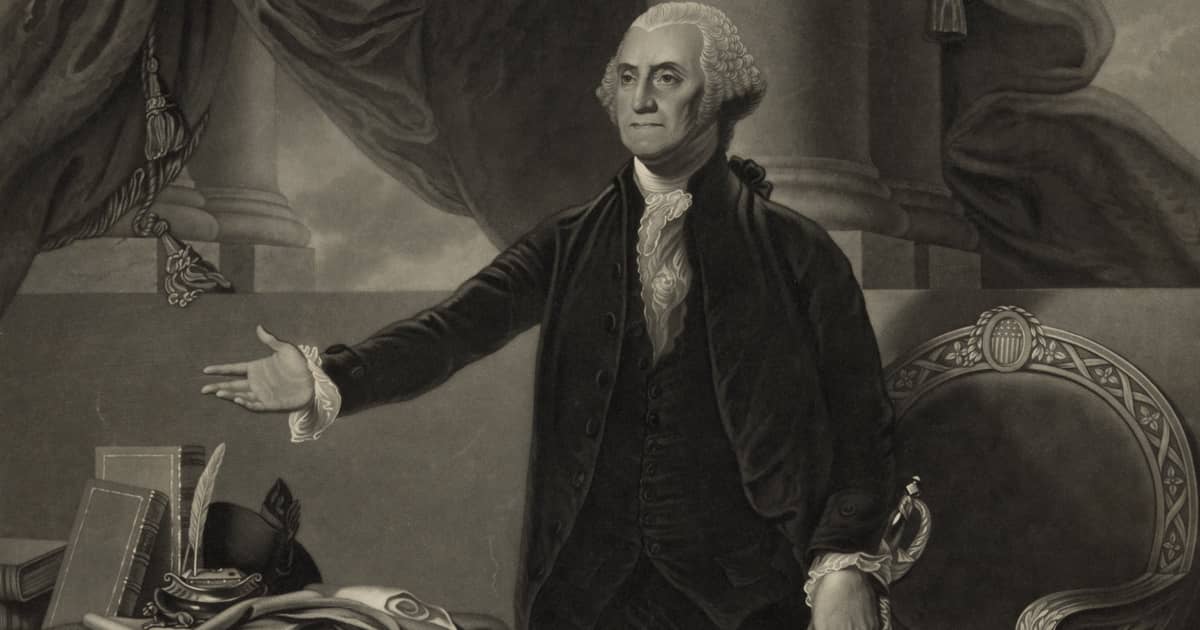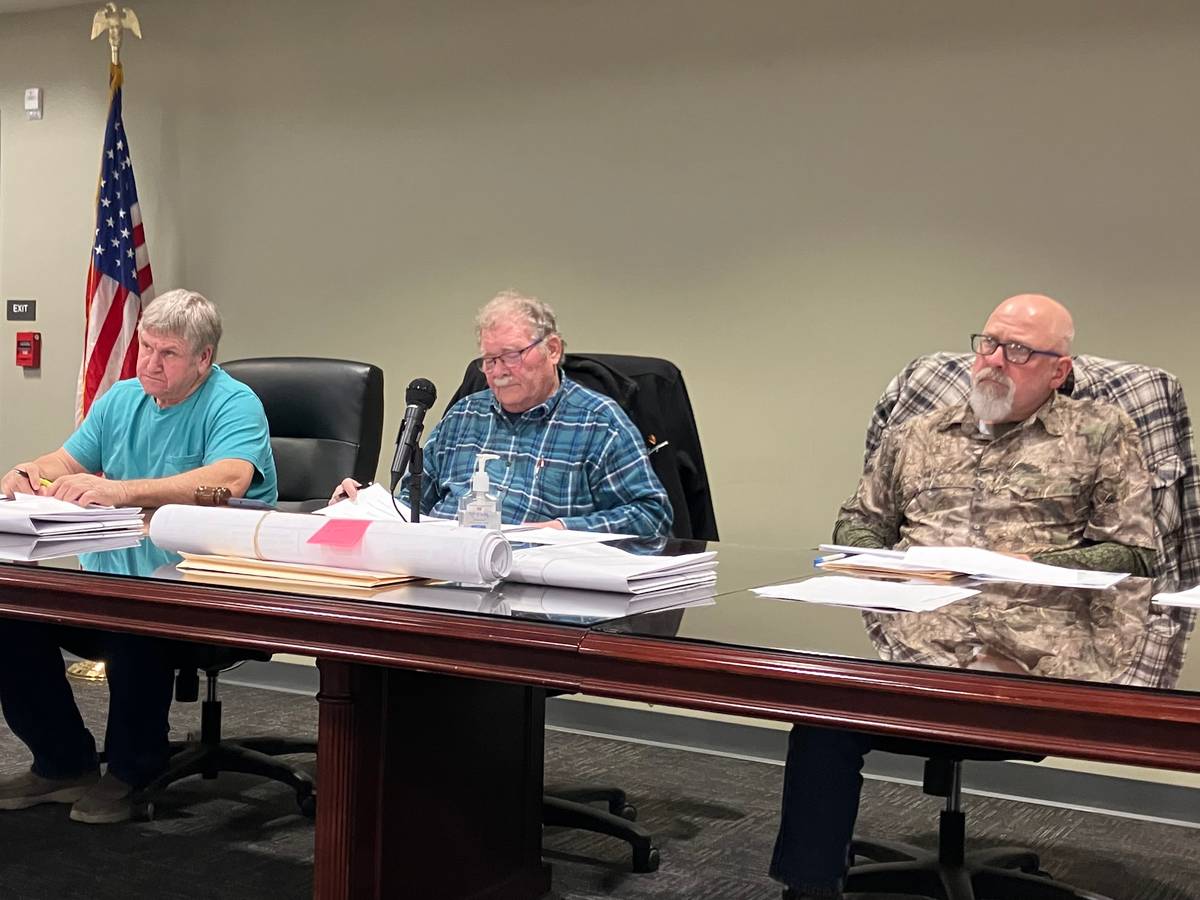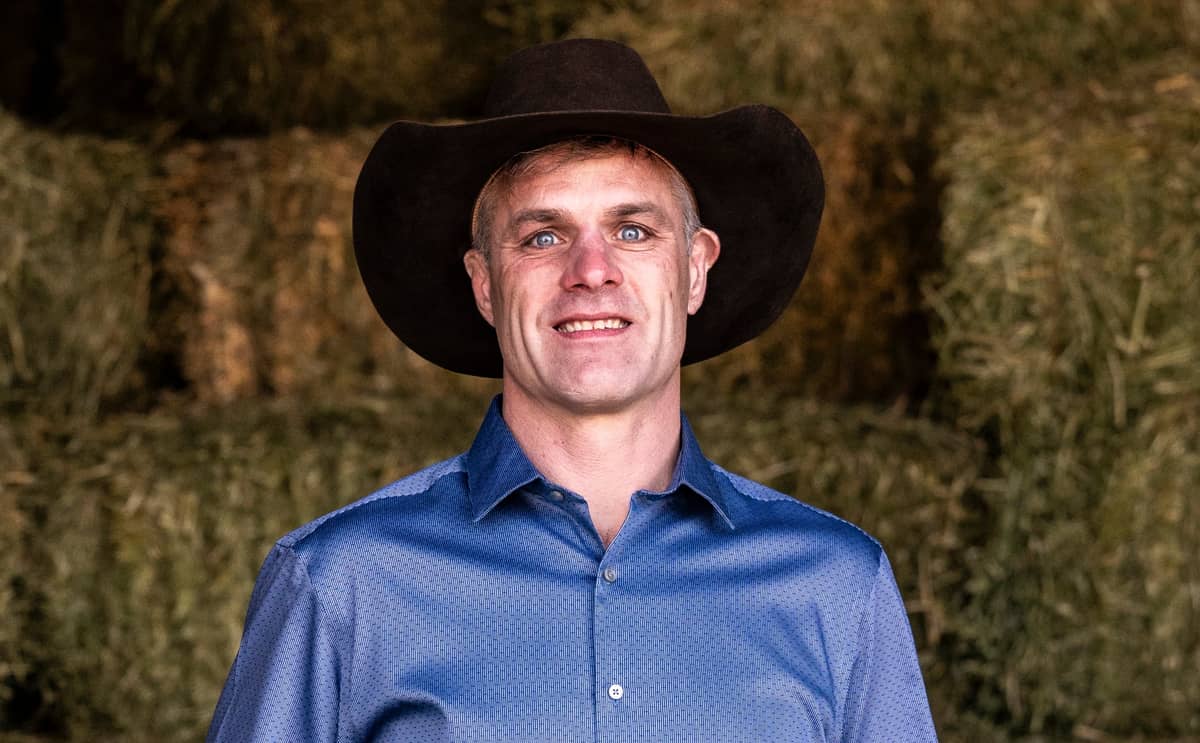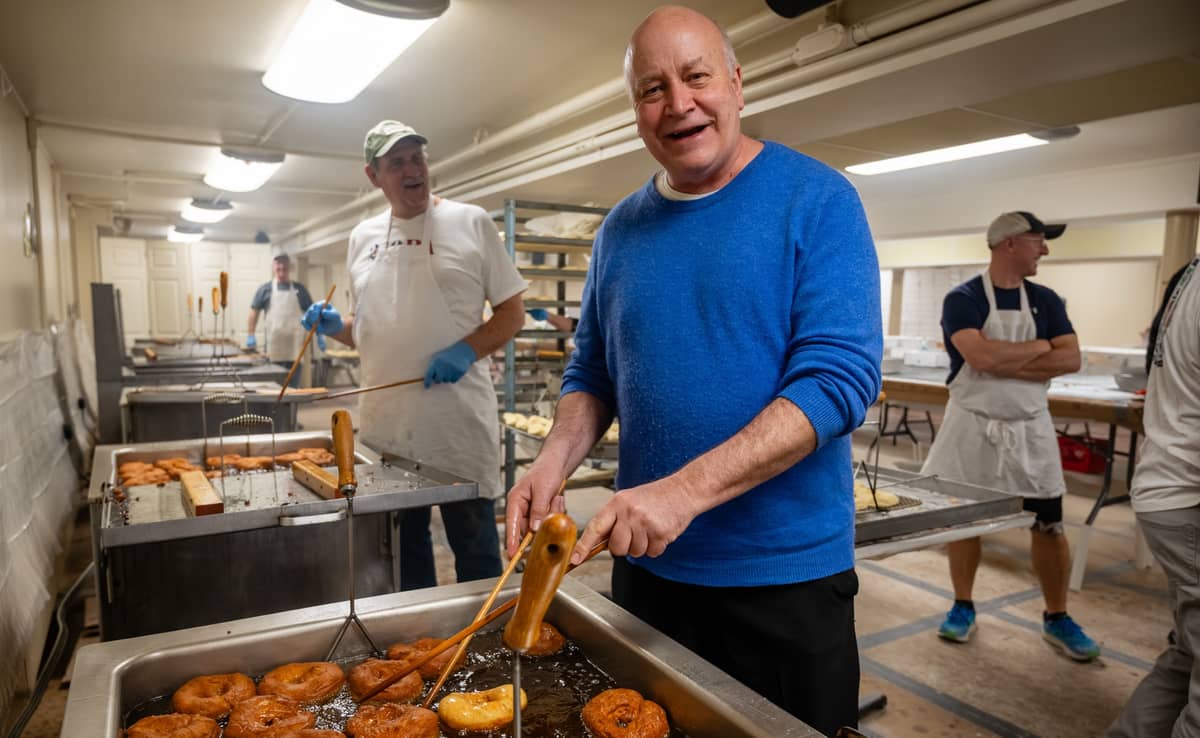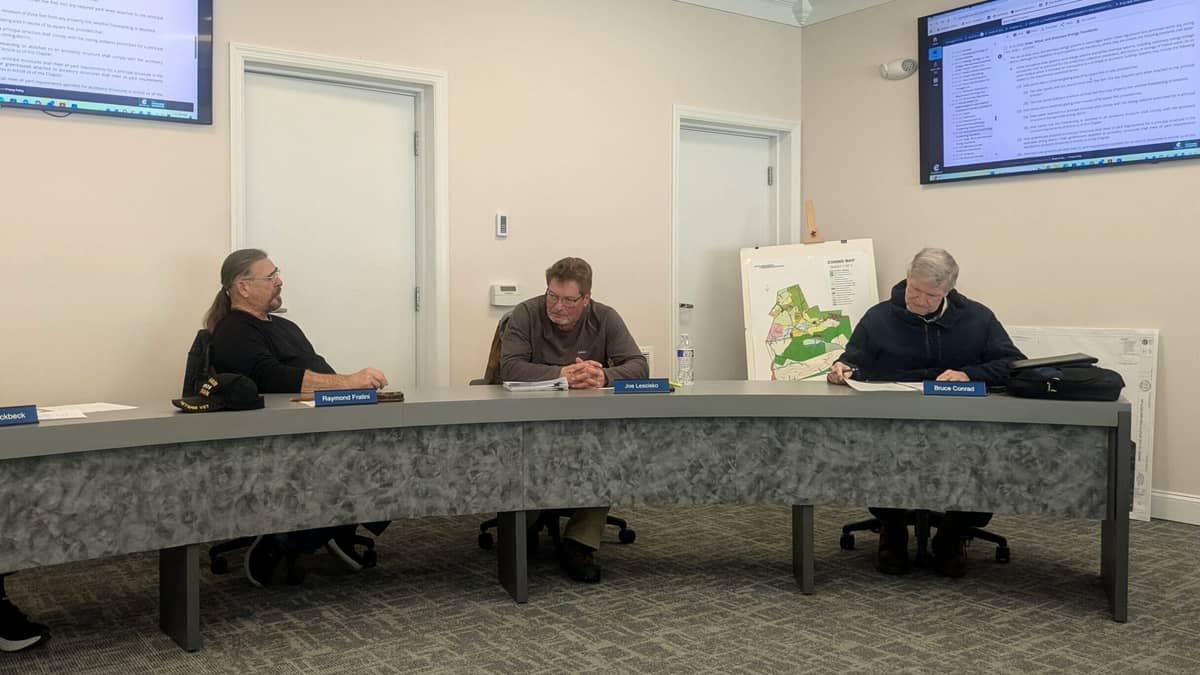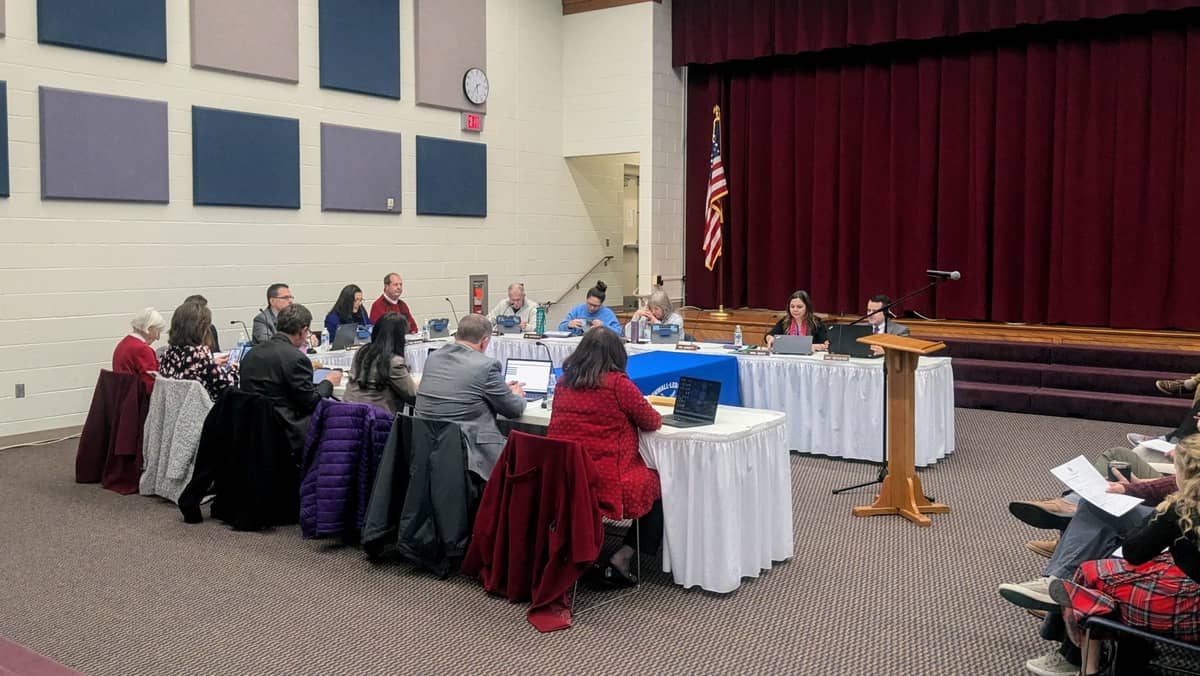This article was originally published in 2019.
Although Lebanon County hasn’t produced one (yet), we have plenty of ties to the nation’s highest elected office: The Presidency.
Most area school districts and government offices are closed on Presidents’ Day. The holiday originally fell literally on Washington’s Birthday (February 22) but is now held on the third Monday of February.
Starting with the American Cincinnatus himself, here are Lebanon County’s links to American presidents.
George Washington
Washington is documented to have visited the area during the Revolutionary War and later during the construction of the Union Canal. During these visits, he stayed at the home of Michael Ley in Meyerstown several times. Known as Tulpehocken Manor, the site sits alongside the Tulpehocken Creek and today has only ruins where the massive Union Canal locks were once inspected by Gen. Washington himself.
Washington may also have traveled to Schaefferstown to purchase whiskey for his army while it was encamped at Valley Forge during the winter of 1777-78.
The Reading Eagle dug into Washington’s history with the area and found an October 1794 diary entry that read in part, “(The Union Canal’s) descent from the summit ground along the Tulpehocken appeared admirably constructed.” The 1794 visit also involved whiskey, but for a different reason – Washington was headed to Carlisle to deal with the Whiskey Rebellion.
Read More: The rise and fall of the Union Canal: A tale of ambition, struggle, and ingenuity
Lore says that President George Washington also visited Lebanon in 1792 to inspect construction near Avon. He was said to have been accompanied by David Rittenhouse and Robert Morris and have lodged at the Swan Tavern at 10th and Cumberland Streets, known today as the former George Washington Tavern.
One of the pallbearers for Washington’s funeral, Colonel Philip Marsteller, also had links to Lebanon County. Marsteller grew up in the Philadelphia area but purchased a tract of land in Millcreek around 1763. Marsteller was second in command of the Battalion of Associators that sprung up in the area of Lebanon County in the fall of 1775. Marsteller moved to Alexandria, VA after the war, where he went on to become mayor. Marstellar is also known for his late in life acquisition of a pair of dueling pistols once owned by Washington himself.
Washington’s letters include one from a Major Joseph Watkins in Lebanon as well as more significant correspondence with Dr. William Stoy, a clergymen and doctor who advised Washington on medical matters.
Washington was also friends with Lebanon’s John Gloninger, Revolutionary War lieutenant colonel, state representative and senator, and associate judge.
Read More: John Gloninger and his lasting legacy in North Cornwall Township
James Buchanan
James Buchanan was born in 1791 near Mercersburg. The son of an Irish storekeeper, he went on to attend Dickinson College before entering the practice of law in the area in 1813. Buchanan began his law career practicing on the second floor of today’s Lebanon County Historical Society Stoy Museum, the front part of which was originally built as a home for the same Dr. William Henry Stoy mentioned above. The upstairs rooms were used as Lebanon’s first courthouse.

James Buchanan biggest tie to Lebanon was arguably his life’s big regret, his doomed engagement to Ann Coleman. Coleman is said to have killed herself with laudanum after her father forbade a relationship with the then-upstart country lawyer and state congressman. Buchanan’s status as the only bachelor American president stems from this romantic devastation. Coleman’s ghost is said to haunt (or rather, grace) the former Inn 422, now Misago Bistro, which stands on the site of a former Coleman mansion.
Buchanan is the closest thing Lebanon has to a hometown president, and he is said to have returned in the winter of 1856 for a victory rally shortly after being elected to the office. But although Lebanon has some claim to him, Lancaster has the full one. Buchanan’s estate, Wheatland, is located in Lancaster County and although the Coleman story is typically linked with Lebanon due to the Coleman’s stature in this community, the historical record shows that it played out in Lancaster.
Buchanan wasn’t the only great Pennsylvanian unable to marry a Coleman daughter: The Rev. William Muhlenberg faced the same fate.
Another connection was Elizabeth Hutter (PDF), daughter of Lebanon’s Col. Jacob Shindel. Hutter’s husband ended up serving as assistant to then-Secretary of State James Buchanan, and the couple moved to Washington. Buchanan ended up godfather to their second son, who was named after him, but both boys died in infancy, inspiring Hutter to a life of service and fundraising. Her causes included the great Chicago Fire, the Johnstown Flood, and the Centennial Exhibition in Philadelphia. Hutter is buried in Philly’s Laurel Hill Cemetery and a youth home that she founded in that city remains in operation to this day.
Abraham Lincoln

In 1961, as part of his contract to demolish the Coleman Park mansion, contractor Harold E. Moody discovered a safe that was found to contain a letter from President Abraham Lincoln to George Dawson Coleman appointing him to a commission for the 1862 Industry of All Nations Exhibition.
The letter was written September 12, 1861. As part of his contract, Moody was allowed to keep and sell what he found in the mansion. The letter ended up being purchased by Rick Abel’s company, Abel & Son Roofing and Siding, and was later donated to the Lebanon County Historical Society and put on display in 2017.
Historical Society archivist Adam Bentz told WITF that the letter may have been written in part as thanks for Coleman’s support of the Union during the war.
Lincoln also had ancestors who lived in Berks County, ending with the president’s grandfather.
Ulysses S. Grant
Ulysses S. Grant visited Lebanon on two or three occasions, always staying with George Dawson Coleman. He is said to have toured industrial sites like the Light Bro.’s Rolling Mills, the Donaghmore Furnace, Weimer Machine Works, Lebanon Paper Mills, and more.
Benjamin Harrison
Visited during the summer of 1890 for Camp Hartranft, the soldiers’ encampment at Mt. Gretna. The first-ever Farmers’ encampment was held in Mt. Gretna later that summer.
Teddy Roosevelt
Bismarck, PA was renamed Quentin after the July 1918 death of Theodore Roosevelt’s youngest son, Quentin, during a WWI dogfight over France.
Read More: How Bismarck, PA in Lebanon County was renamed for Teddy Roosevelt’s son, Quentin
The then-former president wrote the people of Quentin in November 1918 thanking them for the honor, saying he was “deeply touched.” He also sent a silver cup to express his gratitude.

Dwight D. Eisenhower
President Dwight D. Eisenhower has always been an honorary Pennsylvanian, but those roots go much deeper than Gettysburg and Penn State (although he did retire to the former, and his brother was president of the latter).
Read More: The long history of President Dwight D. Eisenhower’s family in Lebanon County
The first documented ancestor of Ike’s to land in Pennsylvania was one Nicholas Eisenhower, who in 1753 paid five pounds to become owner of 100 acres of frontier in what is today Lebanon County’s Bethel Township.

John F. Kennedy
Presidential candidate John F. Kennedy, on his two-day campaign tour in Central Pennsylvania, addressed economic concerns and the future of U.S. global influence during a rally in Lebanon on Sept. 15, 1960.

Read More: A look back on JFK’s visit to Lebanon during his 1960 run for president
Thanks to Pat Rhen who provided countless links that helped with this post.
Questions about this story? Suggestions for a future LebTown article? Reach our newsroom using this contact form and we’ll do our best to get back to you.

Join our community of local news champions.
Cancel anytime.
Monthly Subscription
🌟 Annual Subscription
- Still no paywall!
- Fewer ads
- Exclusive events and emails
- All monthly benefits
- Most popular option
- Make a bigger impact
Already a member? Log in here to hide these messages
An informed community is a stronger community. LebTown covers the local government meetings, breaking news, and community stories that shape Lebanon County’s future. Help us expand our coverage by becoming a monthly or annual member, or support our work with a one-time contribution. Cancel anytime.

